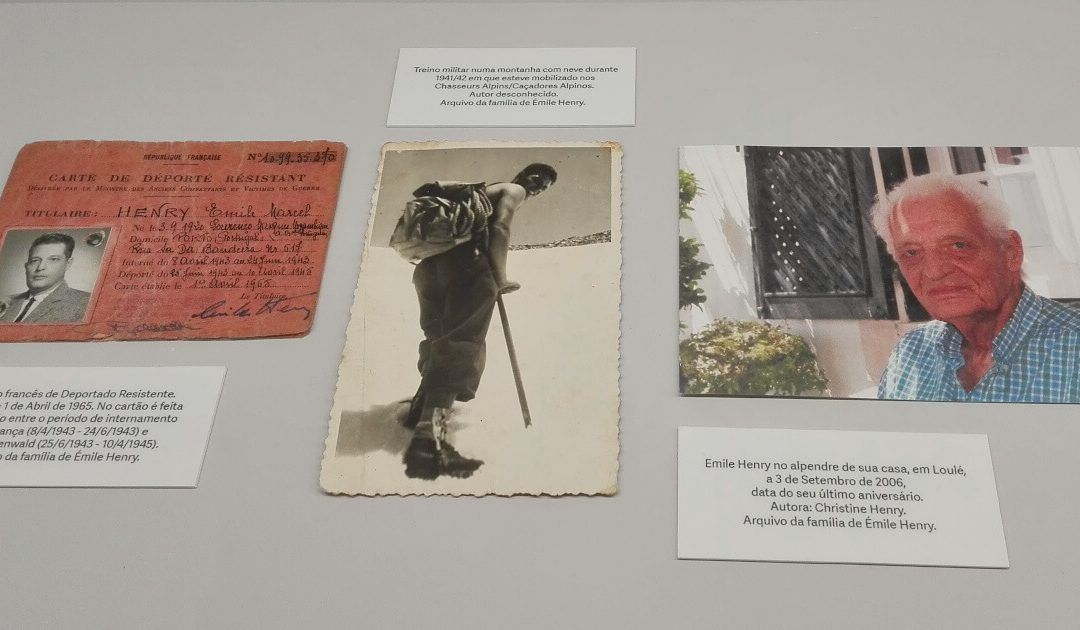This transnational project aims to create a public platform with information about Portuguese and Spanish forced labourers in Nazi Germany. Funded by the programme Europe for Citizens, it is led by the Institute of Contemporary History (IHC) of the New University of Lisbon and will culminate in 2023 with the presentation of a travelling exhibition. Having as partners the Autonomous University of Barcelona, the University of Paris 8 and the European Observatory on Memories, the project seeks to broaden the scope of work carried out since 2015 by a team led by historian Fernando Rosas, who started from the study of the Portuguese in the countryside concentration camp in Mauthausen, Austria, and which spread to the main Nazi camps.
One of the lesser-known aspects of World War II is the issue of forced labour set up by Nazi Germany. This brutal system deported millions of foreign civilians from occupied countries who, alongside prisoners of war and concentration camp inmates, to work as slaves. This ubiquitous phenomenon across Europe is largely absent from European memory, and it is only recently that historiography has begun to analyse it, identify these victims and reconstruct their forgotten life trajectories. The Spanish and Portuguese victims of the Nazi regime were further overlooked due to the neutrality of these two countries and the corresponding impression that they and their peoples had nothing to do with the conflict.
The research undertaken by FORCED aims to shed light on this common European past and to encourage a large-scale reflection on the consequences of totalitarian regimes and the preservation of the memory of their victims. Besides historians, the main target audience of the project is the educational community as well as civil society.
Partner institutions
- Universidade Nova de Lisboa, Portugal (main partner)
- Université Paris 8 Vincennes Saint-Denis, France
- Universitat Autònoma de Barcelona, Spain
- European Observatory on Memories (EUROM) of the University of Barcleona’s Solidarity Foundation, Spain
- International Tracing Service, Germany
- Associaçao de Professores de História, Portugal
Collaborations
- Amical de Mauthausen (Barcelona)
- Memorial Democratic (Barcelona)
- Division of the Archives of Victims of Contemporary Conflicts (Caen)
Experts’s team
- Cláudia Ninhos, University Nova de Lisboa, Portugal
- Cristina Climaco, Paris 8 University
- Marta Simó, Universitat Autònoma de Barcelona, Spain
- Jordi Guixé, EUROM (Fundació Solidaritat de la Universitat de Barcelona)
- David González, EUROM (Fundació Solidaritat de la Universitat de Barcelona)
- Marta Torres, APH
Background
The ticket to access contemporary Europe is recognition of the Holocaust”, wrote Tony Judt. The Holocaust and the horrors of World War II are today the founding historical events of European memory. One of the lesser known aspects of this conflict is, however, the issue of forced labour. Nazi Germany established a brutal system of forced labour, deporting millions of foreign civilians from occupied countries who, alongside prisoners of war and concentration camp prisoners, were deployed as slave labour.
This was an omnipresent phenomenon across Europe, but broadly absent from the European memory. Only more recently has historiography begun to analyse this dimension and account for and give names to these victims as well as rebuilding their forgotten lives. Still more overlooked were the Spanish and Portuguese victims of the Nazi regime in keeping with how these two countries remained neutral and the corresponding perception that they and their peoples had nothing to do with the conflict correspondingly taking root.
In a partnership between academic institutions and civil society organizations from 4 countries and counting on 590 participants, FORCED is to cast a light on this shared European past and foster wide reaching reflection on the consequences of totalitarian regimes and keeping alive the memory of their victims. The project’s principal target public is the educational community as well as civil society. The core outputs include a website, which shall contain an open database on these citizens with information on the life histories of the Portuguese and Spanish nationals enslaved by the Third Reich and also featuring a set of education resources to be co-designed by teachers and students for usage in the classroom and subsequently promoted through training actions. Civil society is both involved and reached out to through a touring exhibition raising awareness and transnational debate on forced labour under National Socialism and its memory.

